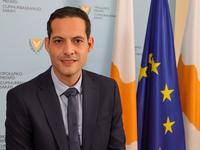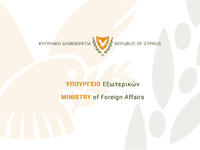Press Releases
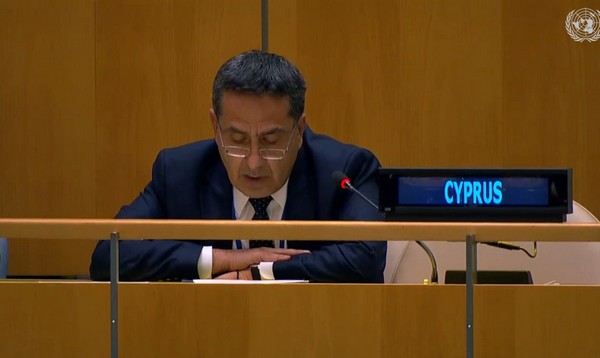
25-01-2022 08:37
Statement by the Permanent Representative of Cyprus to the UN, Ambassador Andreas Hadjichrysanthou, on the Report of the Secretary General on the work of the organization
76th Session of the United Nations General Assembly, New York, 21 January 2022
Mr President,
My remarks complement those made by the European Union at this morning’s informal session. Let me start by thanking the Secretary-General for his report on the work of the organization and the presentation of his priorities this morning. We also thank him for his stewardship of the United Nations in the past five years, including his personal involvement in the efforts to settle the Cyprus problem, and wish him a productive and successful second term. We support the focus on the five emergencies laid out by the Secretary-General this morning and we agree with him that the challenges we face essentially represent failures of global governance and that our priority should be to keep multilateralism fit for purpose.
The report of the Secretary-General on peace and security conveys the complexity of this pillar by discussing some of its many components, but for us there is only one element we can use as a barometer for the UN’s effectiveness in the maintenance of peace and security and that is the organisation’s ability to uphold the prohibition of the use of force. Though hard to measure, it is plain to see that the threat or use of force have not been eliminated, as we hoped would be the case 75 years after we were compelled to create the UN to put an end to aggression. The statement of the Secretary-General today that we face the highest number of violent conflicts since 1945 indeed rings the alarm that we must do better.
Relations among states are more polarized than they should have been 30 years after the end of the cold war. We share the Secretary-General’s concern about the deepening East-West divide, as well as the risk of ending up with a fragmented, or even parallel, global systems in the future. This geopolitical polarization is itself a source of anxiety and insecurity, particularly for small states. It puts on display the shortcomings of our system of collective security with its overdependence on power relations. It also shows that the rule of might has not been mitigated by a cooperative approach on a global level, based on the rule of law, with universal values binding all states together.
Multilateralism is still, not only the best, but the only framework for an effective, international system of collective security that will ensure equality in security for all, the non-tolerance of threats, consequences for aggressors and justice for the victims. Where unlawful use of force cannot be prevented, the UN must ensure that its results are neither accepted, nor legitimized. We have both the legal basis and the tools to enforce compliance with the rules-based international order that we established, and we need to do precisely that, including by strengthening our institutions for global governance.
We concur with the emphasis placed by the Secretary-General on conflict prevention, including in his proposed New Agenda for Peace. At the same time, the plethora of existing conflicts should not be left behind. The Secretary-General mentioned a number of them this morning, including Cyprus, where we continue to be grateful for his good offices mission to reunite Cyprus as a bi-zonal, bi-communal federation with political equality as set out in relevant resolutions of the Security Council. We hope that the Secretary-General will be in a position to appoint an envoy to facilitate the resumption of the peace process as soon as possible.
Mr President,
Inequality is another big concern, not only for its effects on human welfare and dignity but its impact on governance and the rule of law. Despite our best efforts, we see that the pandemic has resulted in the concentration of even more wealth in the hands of a few, creating a dangerous chasm. As the international community, we need to design more, and better, equalizers to avoid a dystopian future where extreme wealth, or poverty, are the norm. Our equalizers need to also take into account, the fact that all crises – be it poverty or climate or human rights – always affect women disproportionately.
The climate crisis is an existential one for many of us, mostly small states that bear little responsibility in creating it. The prospect of becoming – partly or wholly – uninhabitable due to climate change is a real concern, as is the de-territorialization of states due to sea level rise. As a conflict state with part of its territory under occupation, and a country that has been experiencing the consequences of climate change for years, Cyprus is also extremely concerned about the threat posed to peace and security by climate change. The inability to share the burden of migrant flows gives rise to questions as to how the massive displacement of people due to climate change, which is already happening, will be dealt with.
Before closing, Mr President, I wish to offer some remarks on the debate itself. In recent years, the debate on the report on the work of the organization has been amalgamated with the presentation of the Secretary-General’s priorities early in the calendar year, while the report continues to issue at the beginning of each session. We believe that we would benefit from synchronizing and consolidating the outlining of priorities, the issuance of this report and the discussions on the state of the organization in the beginning of each calendar year. Furthermore, we see merit in shifting GA sessions to coincide with calendar years, so as to discuss where we are and where we want to go at the beginning of the session and take stock during high-level week towards the end of the session. Aligning these tools would better serve the overarching objective of strengthening the United Nations.
Thank you.
(MG/ECHR)
Relevant Press Releases
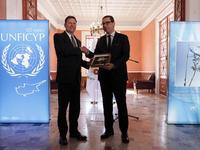
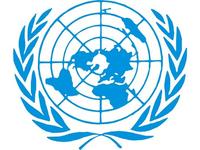
30-08-2023 09:06
Reference to the Cyprus problem during UN press briefing
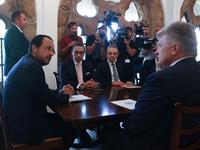
28-08-2023 12:42
The President of the Republic received Mr Miroslav Jenča
